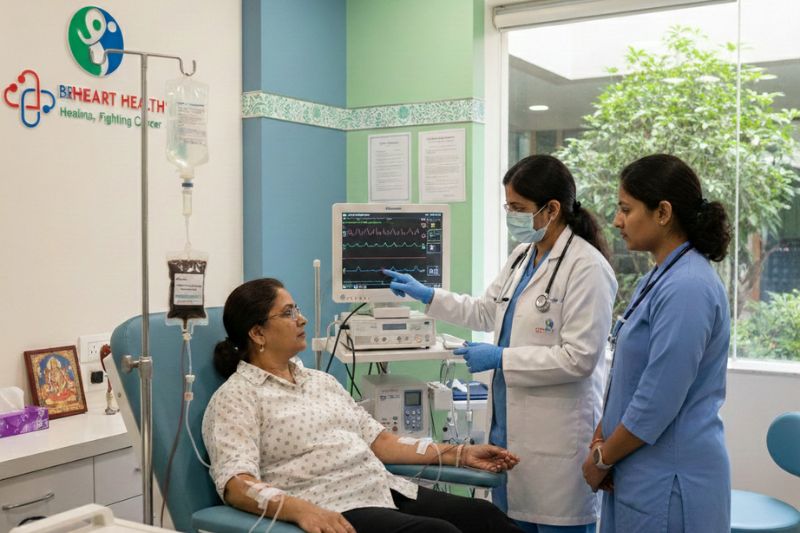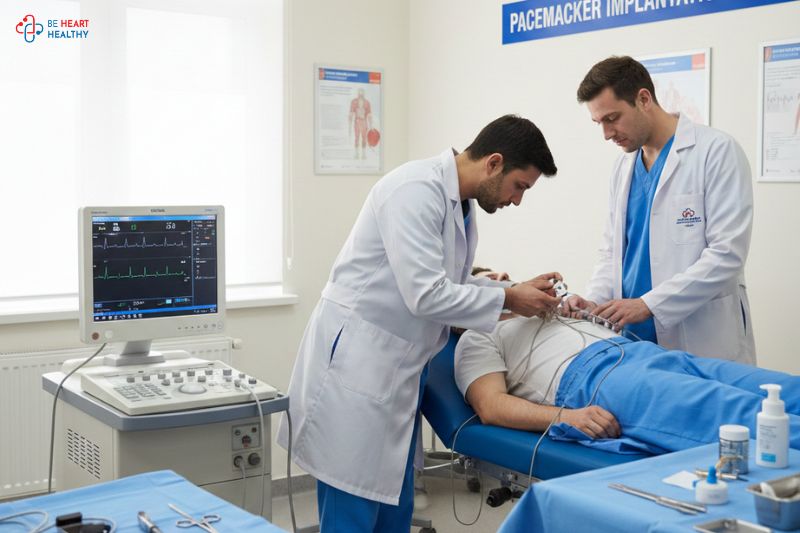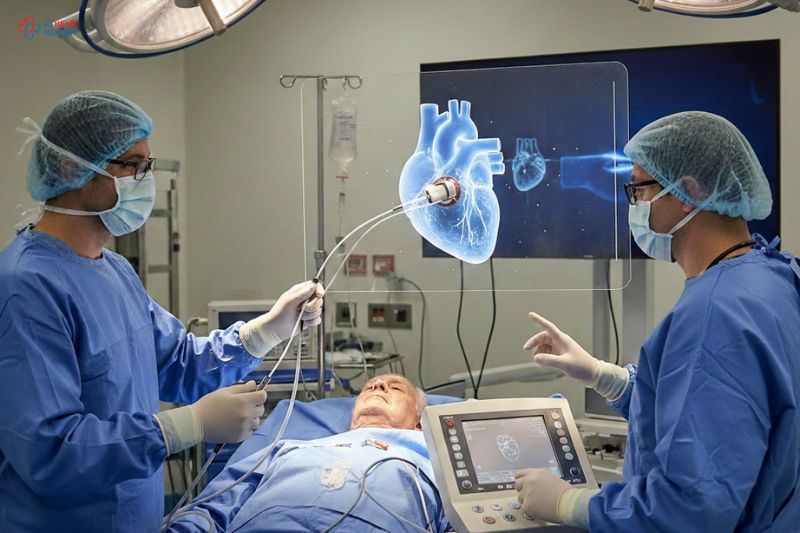Introduction
One of the easiest and quickest procedures to examine the heart is an electrocardiogram (ECG).
The heart’s electrical activity is monitored during an ECG. It evaluates the muscular thickness of the heart, size of the heart chamber, and heartbeat (1). It is used to assess the following heart conditions:
- Arrhythmias: Irregular, rapid, or slow heartbeats.
- Congenital heart disease: heart issues since birth
- Coronary artery disease: issues with the cardiac muscle’s blood supply
- Electrical issues, such as electrical signal delays or the origin of the heart’s first beat in the heart
- Heart attacksthat have occurred or are currently occurring
- Heart failure: Heart failure is characterized by weakening heart muscle and ineffective blood pumping.
- Cardiomyopathy: Regions of the cardiac muscle that are overly big or thick are referred to as cardiomyopathy.
- Valvular heart disease: Heart valve structural issues are known as valvular heart disease.
Procedure
- Electrodes are tiny plastic patches that adhere to the skin.
- They cover certain spots on the chest, forearms, and legs. Lead wires are used to connect the electrodes to the ECG device.
- The heart’s electrical activity is then recorded, analyzed, and printed out.
- The body receives no electrical energy.
The heart’s many muscle contractions are coordinated by natural electrical impulses to maintain proper blood flow. These electrical impulses are captured by an ECG to provide information on the heart’s rate, rhythm (stable or erratic), and the intensity and frequency of the electric signals as they pass through the various heart chambers. ECG variations can indicate a variety of heart-related diseases (2).
When is the ECG recommended?
Your doctor may order an electrocardiogram (ECG) for a variety of causes, such as:
- To investigate the source of chest pain
- To assess issues that could be heart-related, like extreme exhaustion, breathing difficulties, drowsiness, or fainting
- To recognize erratic heartbeats
- Before or after therapy for illnesses including endocarditis, and heart attack or after heart surgery or cardiac catheterization, to help assess the general health of the heart.
- To monitor a pacemaker that has been installed
- To assess the effectiveness of specific cardiac medications
- To record the heart’s activity first during a medical assessment; this data can then be matched to subsequent ECGs to determine if any changes have taken place (2).
Types of Electrocardiograms
Our doctors utilize different kinds of electrocardiograms (ECG) to look for a range of heart or lung issues.
- Cardiopulmonary exercise test (CPET): An assessment of the cardiopulmonary system is called a cardiopulmonary exercise test (CPET). This examination is performed to identify any pulmonary or heart disorders.
- Exercise EKG (stress test): To check the heart while stressed or active, a patient is given a stress test (also known as a treadmill test) as they walk on a treadmill or pedal a stationary bicycle. Blood pressure and breathing rates are also observed. A stress evaluation can also be done to diagnose coronary artery disease, and/or to establish safe workout intensity levels after a heart attackor heart surgery (2).
- Signal-averaged electrocardiogram: A signal-averaged electrocardiogram (ECG or EKG) is a more thorough electrocardiogram.
Safety of ECG
ECGs are painless, noninvasive, safe diagnostics that pose no significant hazards. No electric shocks are delivered by the electrodes (adhesive patches) that attach the sensing devices to your chest (3).
Future trends
In order to address the drawbacks of conventional ECG, a novel device called 4-D ECG is created, including a new screen in which the vector loop makes a rotation and is examined along a timed axis. Additionally, devices for comprehensive diagnosis that combine ECG with other diagnosing factors, like oxygen saturation, MRI, blood pressure and CT scanner are already the focus of more research in the future.
All the latest information regarding heart issues and concerns is available online. One of the most popular websites that ensures to take best possible care for your heart is https://behearthealthy.in/contact-us/.
It has a wide range of useful topics providing new insights regarding cardiac care, heart health and cardiologist advice to live a happy, and joyful life. We care for you, so please reach out to us on our social media page for any query: https://www.facebook.com/careforyourheart.in/ and •. https://www.instagram.com/careforyourheart.in/
References:
- https://www.hopkinsmedicine.org/health/treatment-tests-and-therapies/electrocardiogram
- https://stanfordhealthcare.org/medical-tests/e/ekg.html
- https://www.ncbi.nlm.nih.gov/pmc/articles/PMC4554791/pdf/jgc-12-04-448.pdf


